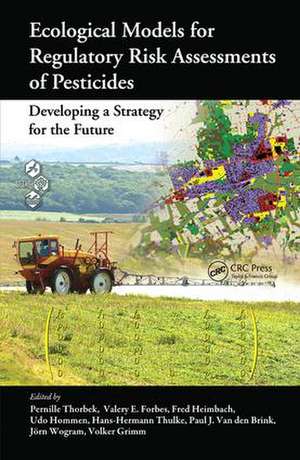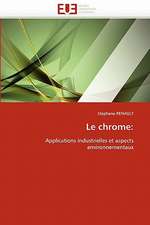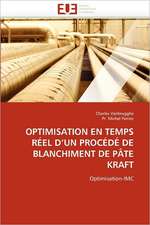Ecological Models for Regulatory Risk Assessments of Pesticides: Developing a Strategy for the Future
Editat de Pernille Thorbek, Valery E. Forbes, Fred Heimbach, Udo Hommen, Hans-Hermann Thulke, Paul van den Brink, Jörn Wogram, Volker Grimmen Limba Engleză Hardback – 18 apr 2018
Preț: 1014.74 lei
Preț vechi: 1441.92 lei
-30% Nou
Puncte Express: 1522
Preț estimativ în valută:
194.19€ • 210.87$ • 163.12£
194.19€ • 210.87$ • 163.12£
Carte tipărită la comandă
Livrare economică 22 aprilie-06 mai
Preluare comenzi: 021 569.72.76
Specificații
ISBN-13: 9781138410145
ISBN-10: 1138410144
Pagini: 164
Dimensiuni: 156 x 234 x 15 mm
Greutate: 0.45 kg
Ediția:1
Editura: CRC Press
Colecția CRC Press
ISBN-10: 1138410144
Pagini: 164
Dimensiuni: 156 x 234 x 15 mm
Greutate: 0.45 kg
Ediția:1
Editura: CRC Press
Colecția CRC Press
Cuprins
Executive Summary of the LEMTOX Workshop: Lessons Learned and Steps to Be Taken. Introduction to the LEMTOX Workshop. Short Introduction to Ecological Modeling. Regulatory Challenges for the Potential Use of Ecological Models in Risk Assessments of Plant Protection Products. Development and Use of Matrix Population Models for Estimation of Toxicant Effects in Ecological Risk Assessment. MASTEP: An Individual-Based Model to Predict Recovery of Aquatic Invertebrates Following Pesticide Stress. Incorporating Realism into Ecological Risk Assessment- An ABM Approach. Ecological Models Supporting Management of Wildlife Diseases. State of the Art of Ecological Modeling for Pesticide Risk Assessment: A Critical Review. The Role of Ecological Modeling in Risk Assessments Seen from an Academic's Point of View. Potential Role of Population Modeling in the Regulatory Context of Pesticide Authorization. Ecological Modeling: An Industry Perspective. References. Index.
Notă biografică
Pernille Thorbek is an ecological modeler at Syngenta.Valery E. Forbes is head of the Department of Environmental, Social and Spatial Change and professor of aquatic ecology and ecotoxicology at Roskilde University.Volker Grimm is a senior scientist at the Helmholtz Centre for Environmental Research-UFZ and teaches at the University of Potsdam.Fred Heimbach is a consultant scientist at RIFCon GmbH.Udo Hommen is a senior scientist at the Fraunhofer Institute of Molecular Biology and Applied Ecology.Hans-Hermann Thulke is a senior scientist at the Helmholtz Centre for Environmental Research-UFZ.Paul J. van den Brink is a professor of chemical stress ecology at Wageningen University and a senior research scientist at the Alterra research institute.Jorn Wogram is a biologist with Germany's Federal Environment Agency (UBA).
Descriere
Presents a science-based view on ecological modeling for regulatory risk assessments. This book discusses the benefits of modeling in the context of registrations, identifies the obstacles that prevent ecological modeling being used routinely in regulatory submissions, and explores the actions needed to overcome these obstacles.










![Programming for Chemical Engineers Using C, C++, and MATLAB [With CDROM]: A Project Approach [With CDROM]](https://i4.books-express.ro/bt/9781934015094/programming-for-chemical-engineers-using-c-c-and-matlab-with-cdrom.jpg)











